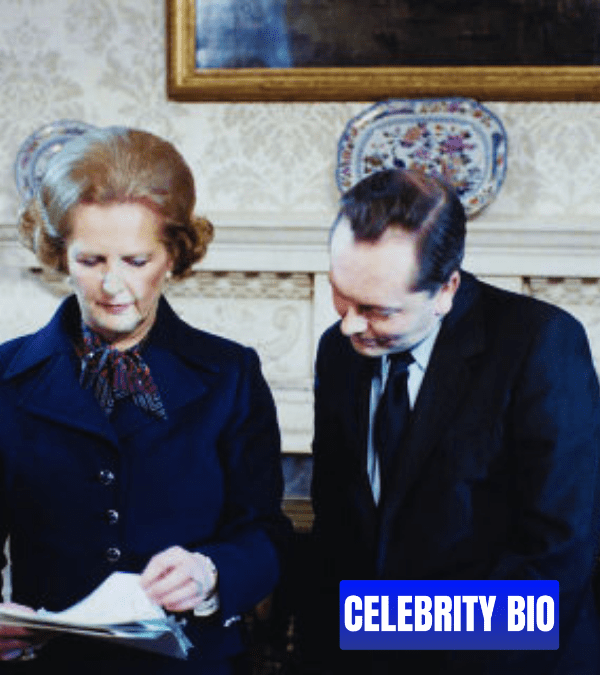Introduction: A Name Woven into British Political Discourse
Brian Walden’s legacy casts a long shadow across the twin landscapes of British politics and journalism. He was not merely a politician turned broadcaster; he was a rare hybrid of public servant and intellectual provocateur. As a Labour MP who transitioned into one of Britain’s most feared and respected political interviewers, Walden didn’t just report politics—he interrogated its very foundations. In an age when spin often outweighs substance, revisiting the life of Brian Walden offers more than nostalgia—it offers guidance. This article retraces the remarkable life of a man who held power to account with a quiet but uncompromising brilliance.
Early Life and Education: The Formative Years
Born in 1932 in the industrial town of West Bromwich, Brian Walden came from a modest background shaped by post-war realities. His upbringing was humble, yet intellectually fertile. From a young age, Walden exhibited a precocious grasp of argument and rhetoric, traits that would later define his public persona. After securing a scholarship to Queen’s College, Oxford, he read Philosophy, Politics and Economics—arguably the most political of academic trios. It was there, amid the worn benches of the Oxford Union, that Walden sharpened his debate skills. Unlike many of his peers who courted ideology, Walden seemed drawn to the mechanics of truth itself—a theme that would echo throughout his career.
Political Career: A Voice in the Labour Party (1964–1977)
Elected in 1964 as MP for Birmingham All Saints, Walden quickly distinguished himself with an unorthodox voice in the Labour benches. He didn’t shout to be heard—he reasoned to be understood. While aligned with Labour’s principles, Walden often operated as an internal critic, especially on matters of economic policy and Britain’s role in Europe. His speeches carried both elegance and weight, often laced with philosophical undercurrents that baffled adversaries and inspired younger MPs. Over time, however, the factionalism of the Labour Party began to frustrate him. He grew weary of tribal politics and chose to exit the Commons in 1977—not in defeat, but in search of a different kind of public dialogue.
A Radical Career Shift: Brian Walden in Broadcasting

Walden’s entry into journalism was less a leap than a metamorphosis. Almost immediately after resigning as an MP, he joined ITV’s Weekend World—a programme that was intellectually rich but lacked a compelling centre. Walden became that centre. He redefined what political television could be: serious, forensic, and unapologetically complex. His interviews were never confrontational for sport—they were intellectual duels, where the aim was illumination, not humiliation. Watching Walden interview cabinet ministers felt like attending a public seminar in power dynamics. He allowed silence to hang, welcomed digressions, and demanded clarity. This was journalism as democratic service, not theatre.
The Thatcher Connection: Iconic Conversations and Mutual Respect
Few interviewers could unsettle Margaret Thatcher. Walden did, repeatedly. Their televised exchanges, particularly in 1983 and 1989, remain masterclasses in political interrogation. Walden would lean back, eyebrow slightly raised, letting his questions bore slowly into the Prime Minister’s ideology. He never blustered—he exposed. What made these interviews iconic wasn’t their aggression but their mutual respect. Thatcher, herself an Oxonian debater, appreciated Walden’s clarity and discipline. While some speculated on Walden’s personal leanings, his journalistic integrity remained intact. He neither pandered nor postured. He simply asked the questions the nation needed answered.
Interviewing Philosophy and Legacy in Media
Walden’s genius lay in his restraint. He understood the gravity of television—not as spectacle, but as a platform for truth-telling. He rarely interrupted, often choosing silence as a strategic tool. His questions were meticulously layered, designed to dismantle rehearsed narratives and expose the scaffolding beneath. In contrast to today’s fragmented, soundbite-driven news culture, Walden believed in the long form. His influence can be traced in the work of successors like Andrew Marr and Jeremy Paxman, though few matched his quiet intensity. He didn’t chase virality—he built credibility.
Later Years: Retirement, Reflections and Public Commentary
After stepping away from the screen in the early 1990s, Walden continued to write and speak, albeit selectively. His essays touched on themes like liberalism, the hollowing of public debate, and Britain’s evolving relationship with Europe. He became a reflective elder statesman, unafraid to critique both the left and right. His occasional radio appearances carried the same calm authority that once dominated Sunday mornings on ITV. When he passed away in 2019, tributes poured in not only from politicians and journalists, but from viewers who had grown up trusting his voice.
Impact on British Political Culture
Brian Walden did more than report or question—he transformed. He represented a rare synthesis of intellectual integrity and public accessibility. He made political complexity feel not just understandable but essential. His legacy is not only in the archives of Weekend World, but in every journalist who believes that democracy deserves more than applause or outrage—it deserves interrogation. His style nudged political television into adulthood, replacing drama with dialogue, and slogans with scrutiny.
What Modern Journalists Can Learn from Brian Walden
In a media age dominated by confrontation, Brian Walden legacy urges a return to discipline, depth, and dignity. He proved that journalism could be adversarial without being antagonistic. Today’s political journalists, often pressed by time and spectacle, could benefit from Walden’s model: prepare obsessively, question respectfully, and listen deeply. His work serves as a quiet reminder that the most powerful tool in journalism isn’t the microphone—it’s the pause that follows a well-aimed question.
Conclusion: Brian Walden’s Enduring Relevance
Brian Walden’s journey from the Commons to the studio was less about career than calling. He viewed journalism not as a job but as a form of democratic accountability. In an era where trust in media and politics is eroding, Walden’s commitment to clarity, truth, and public service stands as both a benchmark and a challenge. His legacy endures not just because of what he said, but because of how he made others answer.
Frequently Asked Questions
Who was Brian Walden?
A former Labour MP and renowned British political interviewer known for his work on ITV’s Weekend World.
What is Brian Walden known for?
He is celebrated for his intellectual interviewing style and his role in elevating political journalism in the UK.
When was Brian Walden an MP?
He served as Labour MP for Birmingham All Saints from 1964 to 1977.
What was Weekend World with Brian Walden?
A groundbreaking British political TV programme where Walden hosted in-depth interviews with key political figures.
What made Brian Walden’s interview style unique?
His calm demeanour, forensic questioning, and refusal to rely on soundbites made his interviews intellectually rigorous.

